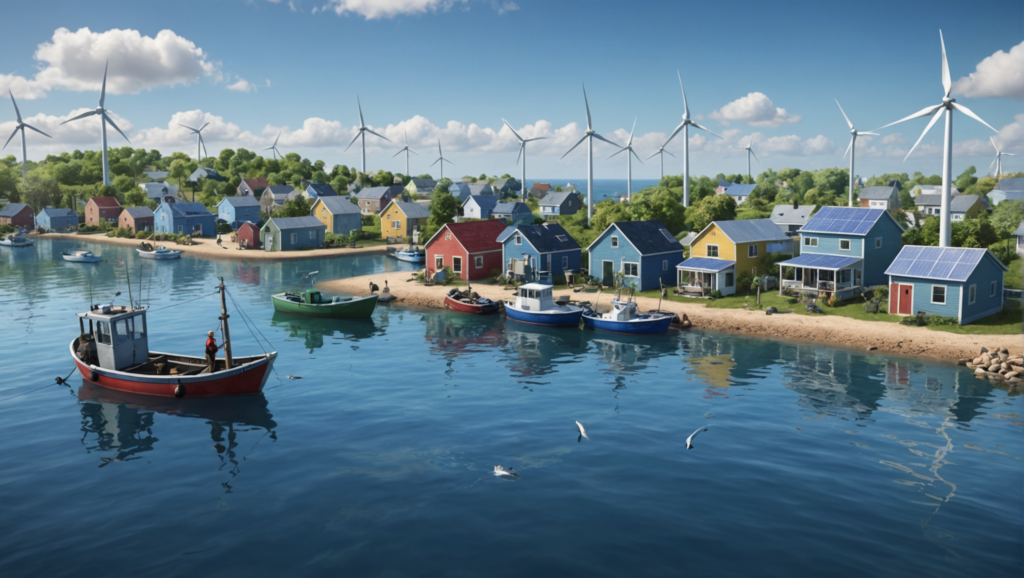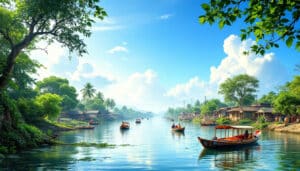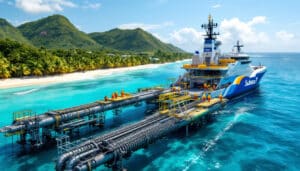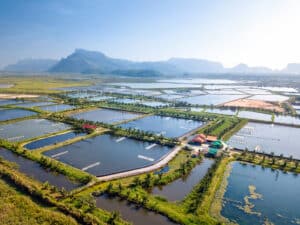The oceans, vast and mysterious, offer a wealth of untapped resources that, if managed carefully, can transform the economic future of many nations. L’blue economy presents itself as an innovative response to contemporary challenges, connecting thesustainable use maritime resources to the objectives of sustainable development. This approach integrates strategies to preserve marine ecosystems while stimulating economic growth, thereby meeting the needs of coastal populations who directly depend on the sea for their livelihoods.
The challenges of this economy prove crucial in a context of climate change and increasing pressure on ocean resources. In addition to preserving biodiversity, the blue economy offers economic opportunities varied, whether for sustainable fishing,aquaculture innovative or the development of marine technologies. Therefore, dialogue between political, entrepreneurial and community actors becomes essential to maximize benefits while ensuring the health of ecosystems. In short, the blue economy is emerging as a strategic path to meeting environmental challenges while promoting the economic well-being of local populations.
In a world where coastal areas are home to nearly 40% of the world’s population, it is crucial to rethink our strategies for exploiting and preserving marine resources. L’blue economy positions itself as a potential engine to ensure a balance between economic development and environmental sustainability.
Table of Contents
ToggleAn integrated approach to the blue economy
The blue economy is defined as the sustainable use of maritime resources, encompassing both oceans and seas, but also freshwater ecosystems. According to a recent study by theUN, oceans could generate $3 trillion by 2030 if managed sustainably. It is an engaging perspective that highlights the importance of integrating environmental aspects into economic policies.
Recent data demonstrate thataquaculture already represents one of the fastest growing sectors in the world, with an annual growth rate of 5% over the last decade. However, the management of fisheries resources must be optimized. A better management is essential to not only maximize yields, but also preserve marine biodiversity. For example, the regeneration of fish populations, through marine protected areas, can lead to increased catches in adjacent areas.
Environmental challenges and innovative solutions
The oceans are suffering the devastating effects of climate change, with rising sea levels and progressive acidification threatening marine ecosystems. The consequences of these changes directly affect coastal communities that depend on marine resources for their livelihoods. To meet these challenges, it is necessary to adopt innovative solutions. An interesting case study is that ofBlue Economy Initiative in Seychelles, which combines marine conservation and improved livelihoods. By integrating aquaculture and conservation practices, this initiative helped restore habitats while supporting the local economy.
Emerging technologies, such as marine biotechnology, also offer new opportunities. Biotechnology makes it possible to explore the unique properties of marine organisms to develop new resources, ranging from medicines to sustainable materials. Thus, Phytokey companies, in French Polynesia, are working on the extraction of marine active ingredients for cosmetics, illustrating how economic efficiency can go hand in hand with the preservation of resources.
Economic and strategic relevance of the blue economy for sustainable development
At the heart of the blue economy lies the idea of integrated governance And participatory. At the European level, for example, the Integrated Maritime Strategy is designed to encourage cooperation between Member States and foster coherent approaches to coastal zone management. Involving local communities in resource management is essential to building resilience to environmental challenges. Public-private partnerships are particularly decisive in this context, making it possible to combine technical expertise and investments necessary for the conservation of marine ecosystems.
This approach goes hand in hand with practical recommendations for governments and economic actors. First, develop sustainable development plans based on scientific data and impact studies. Then, support green sectors such as responsible aquaculture and sustainable tourism. Finally, encouraging maritime awareness and education, particularly among young people, could transform future generations into champions of ocean protection, as illustrated by the initiative Maritime Education.
In short, the blue economy embodies a ocean of opportunities not only to revive the economy, but also to preserve the environment and resources for future generations. Its implementation will require a collaborative vision and strong political will, combined with the engagement of coastal communities.
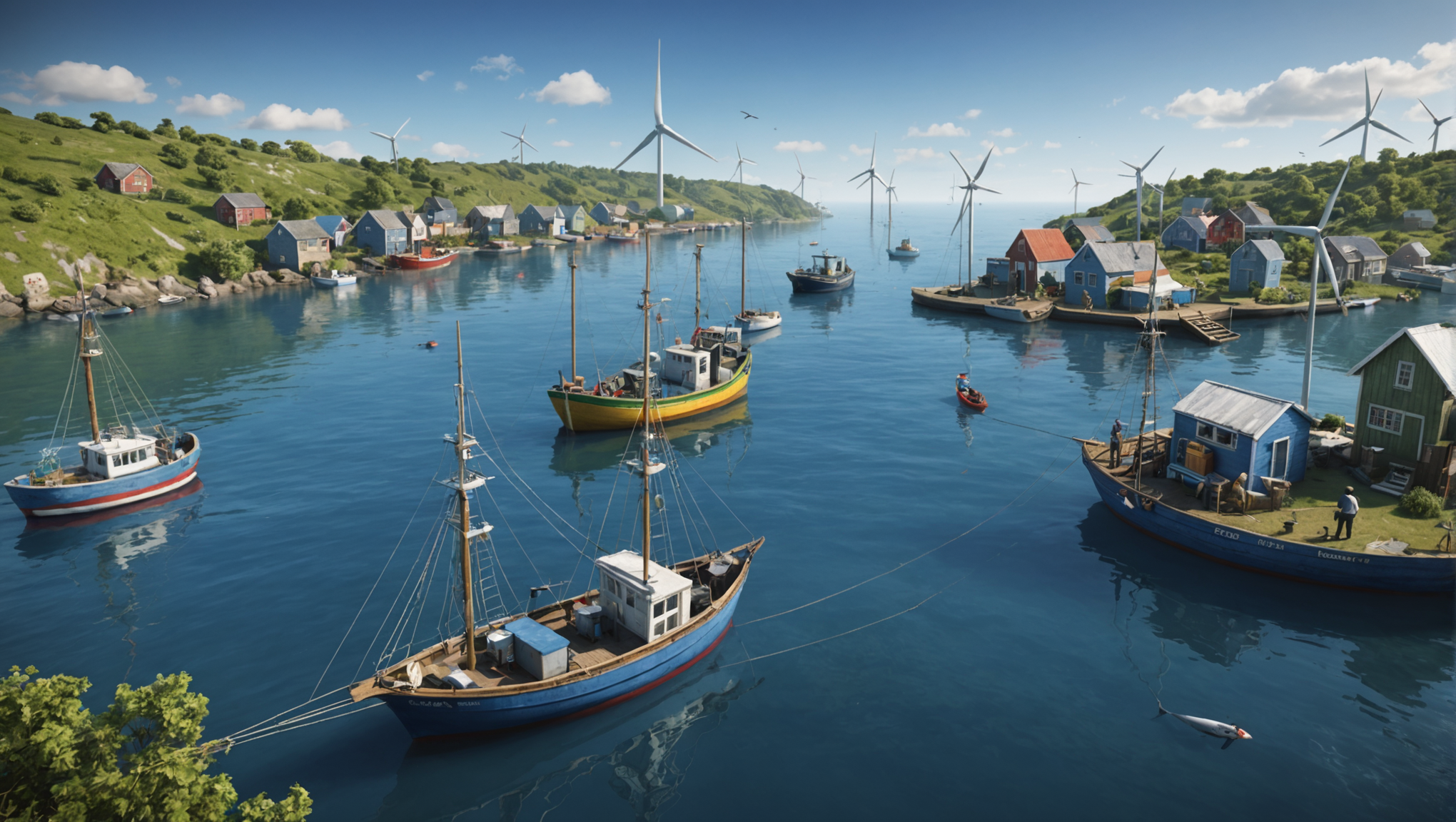
L’économie bleue représente un potentiel considérable de création d’#emplois et d’investissements dans la région euro-méditerranéenne, et par ce biais, de #développement humain et durable, d’#intégration et de #stabilité pic.twitter.com/ogiG8O1P7c
— Union for the Mediterranean (@UfMSecretariat) January 6, 2018
- What is the blue economy?
- The blue economy refers to the sustainable use and conservation of aquatic resources in marine and freshwater environments, thereby promoting economic development while preserving the environment.
- What are the challenges of the blue economy?
- The challenges of the blue economy include the sustainable management of maritime resources, the preservation of biodiversity, the fight against climate change and the promotion of inclusive and sustainable economic development for coastal communities.
- How does the blue economy contribute to sustainable development?
- It contributes to sustainable development by supporting employment and income in marine-related sectors, regulating the climate and ensuring food security through sustainable fishing practices and responsible aquaculture.
- What are the benefits of the blue economy for developing countries?
- For developing countries, the blue economy represents an opportunity to increase export revenues, create jobs and strengthen economic resilience to the impacts of climate change.
- How can maritime policies encourage the blue economy?
- Integrated, participatory and multi-level maritime policies can ensure effective governance of maritime resources, foster public-private partnerships and promote innovation in marine technologies.
- How important is ocean conservation in the blue economy?
- Ocean conservation is crucial to maintaining marine biodiversity, ensuring the sustainability of fisheries resources and promoting the resilience of ecosystems in the face of anthropogenic pressures.
- What challenges does the blue economy face?
- It faces challenges such as marine pollution, overexploitation of resources, the impacts of climate change and the need to raise awareness among coastal communities of the importance of sustainable resource management.
- How can education play a role in the blue economy?
- Education is essential to raise awareness and train younger generations on maritime issues, as well as sustainable practices, in order to encourage their commitment to the preservation of the oceans and the responsible use of resources.

